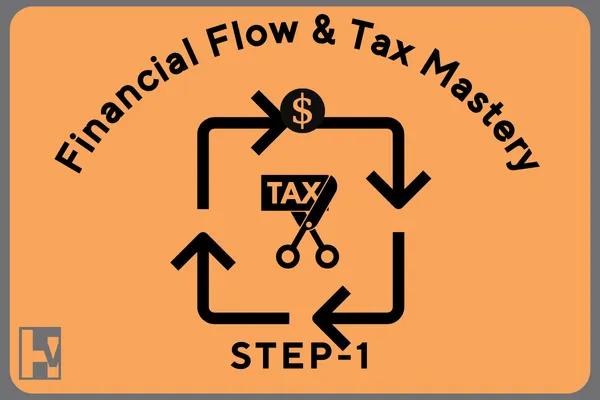Canadian Financial & Retirement Planning Blogs
Explore Our Popular Blog Categories
IMMEDIATE FINANCING ARRANGEMENT (IFA)
FOR CANADIAN CORPORATIONS
An IFA is a practice whereby you take out a premium life insurance policy that has a cash building component, such as an exempt whole or universal life insurance policy, and then directly use the policy as collateral to obtain a loan.
How the IFA works to help you get more tax deductions?

6 Reasons Why Retirement Planning
Should Be Your Priority
Retirement management has several benefits that range from both personal and psychological
to financial. Here are several advantages and common reasons for effectively planning your
retirement. As popular saying
“If you fail to plan, you are planning to fail!”

How to prepare yourself to face life- threatening situations and make the right financial decisions?
Each one of us begins a new day praying to God for the future of our family and ourselves. We step out of our home for work or any reason without knowing what is going to happen. Many personal unexpected situations might affect your family at large.

What is Financial Flow and Tax Mastery, and why should it be the first step?
What is financial flow and tax mastery, and why should it be the first step?
Introduction:
In this knowledge-base post on retirement planning and management, we will explore the key aspects of financial flow management and tax optimization for future-ready Canadian retirees.
Retirement planning is a long and lonely journey filled with uncertainty. Many Canadians delay taking the first step due to various reasons, until the reality of time slipping away hits hard. If you're truly serious about securing your retirement, the best time to start is now. Imagine standing at the edge of retirement, realizing you didn't plan adequately. This scenario is all too common for many Canadians, but it doesn't have to be your reality.
"You don't have to be great to start, but you have to start to be great." - Zig Ziglar
Remember, taking that first step can be daunting, but it's often the key to unlocking success and progress. The first step to achieving financial freedom in retirement is mastering your financial flow and tax strategies.
By understanding and optimizing how money moves through your financial life, which very simply means " What is coming in and What is going out " & "How taxes impact your net take-home amount." —you can set the stage for a successful retirement.
After all we live in one of the most wealthy and advanced nation in the world. We have a very good quality of life here in Canada, very few country in the world has publicly-funded universal access to essential healthcare services. All of those great benefits that many people dream about in other countries, comes from our collective sacrifices as well in the form of many taxes.
Maximize Take-Home Pay
The main goal of this first step to financial freedom in retirement is to maximize the amount of money you take home after all taxes and deductions.
According to the renowned writer and tax expert David M. Voth in his best-selling book, "The 10 Secrets Revenue Canada Doesn't Want You To Know!", the average Canadian now pays half of their income in some form of tax, while the highest income earners pay as much as 75% of their income in some form of tax.
The two largest and longest bills for many Canadians are tax bills and mortgage debt. How many Canadians put in the time and effort to learn the most efficient ways to reduce these two significant expenses and keep more of their money? Do schools teach us how to manage our money effectively?
If you don't take control of your finances, someone else will find a way to take it away from you. The less you know about taxes, the more you pay. Many people celebrate large tax refunds, but there's no reason to do so; you've essentially loaned your money to the CRA interest-free for a year and received it back after inflation. To learn more about keeping more of your money, read the post "Stop Paying Interest-Free Loans to CRA."
Let's continue, the amount you receive every two weeks in your bank account after paying your taxes on today's income. Before you are able to spend it, the major portion of the money is already taken out by the financial institutions for the mortgage and other debts eg: Car Loans, which were set up as pre-authorized debits (PADs) years ago. Together, these deductions along with tax generally account for about 60%-75% of your pre-tax income for Canadians. Now you can think about buying the essentials like grocery, clothes, phone and other living expenses that can not be avoided or delayed.
Feeling depressed already, you are not alone! I have just started to reveal the first onion layer of an enviable educated, hardworking, corporate executive Canadian family with two household income (yes! we use to celebrate DINKs) with over $180,000+ before tax, living in urban city, with a good house and two luxury cars in the driveway.
I know we work to live a good life, after Tax, Mortgage and essential living expenses are taken care, now you can think about money for a good life such as eating out, vacation, or hobby. Great congratulations life is good, kids are growing, good times fly right?
The only issue is either there is very little money left or no more money left for putting aside for early and worry free retirement. If we depend on this money that is left after paying every one first , then we will never be financially free. We will have money at retirement, but it may not be enough to last as long as we live. Even after working for 40 years of our adult working life, making money, spending and saving. Doing everything we are suppose to do. we may not be left with much, if we continue to follow the conventional wisdom about how money works.
There is nothing much we can do to change it. Taxes are high, interest rates on mortgage has gone up, inflation is up and things are no more reasonable. Companies are not hiring as before, technologies are replacing many of the traditional jobs on top of it Artificial Intelligence is redefining how we live and work or even get paid. Things that used to seem perfect just a few years ago seems to be obsolete fast enough.
If you are to retire with time and money freedom, the you will have to look out of the box and rethink your retirement, quotation the conventional wisdom to achieve the kind of results that only 9% rich and wealthy gets. You need to unlearn the old way of managing money that has been handed over for multiple generations and pushed by the institutions to maximize their profits and learn and adopt the modern financial wisdom starting today.
Complete control over your finances along with how it gets taxed and how debt works from the ground up has to be reestablished in your true understanding in the way it is supposed to be and not the way you have been made to believe for long by the institutions. You must find a legal way to lower your taxes and learn to rearrange your debts in such a way that you pay simple interest on your loans, the cost of borrowing are tax deductible expense and your investments are growing at compounding tax efficiently without the fear of losing the capital money invested. If you are unable to get at east to this level of understanding how money works, forget about early retirement , be prepared to work till you die. As the capitalist institutions will make sure that all your money gets sucked into their system.
Action Steps: Understanding Financial Flow
1. Track Your Income: List all sources of income, including salary, investments, and any side gigs.
2. Categorize Expenses: Break down your expenses into categories like housing, groceries, transportation, and entertainment.
3. Identify Patterns: Look for patterns in your spending. Are there areas where you can cut back?
4. Create a Budget: Develop a budget that aligns with your financial goals and stick to it.
Action Steps: Tax Mastery
1. Understand Your Tax Bracket: Use the [Canadian Marginal Tax Calculator](#) to find out your tax bracket.
2. Maximize Deductions: Take advantage of all available deductions and credits.
3. Plan for Retirement Accounts: Contribute to RRSPs and TFSAs to reduce taxable income.
4. Consider Income Splitting: If applicable, income splitting with a spouse can lower your overall tax bill.
Key Elements of a Good Budget:
Budgeting is a crucial part of financial flow management. A well-structured budget helps you control your spending, save more, and avoid unnecessary debt. It's the roadmap that guides you towards financial freedom.
- Income: Start with your total monthly income.
- Fixed Expenses: Include rent/mortgage, utilities, and insurance.
- Variable Expenses: Account for groceries, transportation, and entertainment.
- Savings: Allocate a portion of your income to savings and investments.
- Debt Repayment: Set aside money for paying off debts.
Practical Tools & Tips
Download our free budgeting sheet and use the Canadian Marginal Tax Calculator to start your journey today.
1. Use a Budgeting Tool: Download our free Financial Flow Analysis cum Zero-Based Budgeting Sheet
2. https://hexavision.ca/FinancialCalculators
Ready to take the first step towards a secure retirement? Watch our free masterclass to learn more about financial flow management and tax optimization strategies.
IMMEDIATE FINANCING ARRANGEMENT (IFA)
FOR CANADIAN CORPORATIONS
An IFA is a practice whereby you take out a premium life insurance policy that has a cash building component, such as an exempt whole or universal life insurance policy, and then directly use the policy as collateral to obtain a loan. In this way, you gain the full benefit from the insurance policy, yet you are still able to use your money to build your business or to invest in other income-generating avenues.
How the IFA works to help you get more tax deductions?
6 Reasons Why Retirement Planning Should Be Your Priority
Retirement management has several benefits that range from both personal and psychological to financial. Here are several advantages and common reasons for effectively planning your retirement. As popular saying
“If you fail to plan, you are planning to fail!”

How to prepare yourself to face life- threatening situations and make the right financial decisions?
Each one of us begins a new day praying to God for the future of our family and ourselves. We step out of our home for work or any reason without knowing what is going to happen. Many personal unexpected situations might affect your family at large.
Working Hours
🟢 Monday to Saturday : 9:30 AM - 6:30 PM
🔴 Sunday : Closed
Our Service Area
Ontario | Quebec
Alberta | Nova Scotia
British Columbia | Saskatchewan
New Brunswick
Join Our Blogs
Kanwaljit (Sunny) Kochar DBA Hexavision Enterprise is licensed to sell Segregated Funds investments, Life and A&S Insurance products in Ontario, Alberta, QC, NB, SK, NS and British Columbia. Not available in other provinces.
License #s: FSCO LIC#17161321 (ON), AIC LIC # M-3493167-1763384-2020 (AL), BC LIC#LIC-2020-0022136-R01 (BC). Insurance and segregated funds provided by Carte Risk Management Inc.
@ 2025 Hexavision Enterprise| Terms And Condition| Privacy Policy | Advisor Disclosure
© 2025 Hexavision Enterprise. All rights reserved
Our Service Area
Ontario | Quebec
Alberta | Nova Scotia
British Columbia | Saskatchewan
New Brunswick
Working Hours
🟢 Monday to Friday : 9:30 - 6:30 EST
🔴 Saturday and Sunday : Closed
Join Our Blogs/Newsletter
Kanwaljit (Sunny) Kochar DBA Hexavision Enterprise is licensed to sell Segregated Funds investments, Life and A&S Insurance products in Ontario, Alberta, QC, NB, SK, NS and British Columbia. Not available in other provinces. License #s: FSCO LIC#17161321 (ON), AIC LIC # M-3493167-1763384-2020 (AL), BC LIC#LIC-2020-0022136-R01 (BC), AMF LIC# 2023-CI-1016414(QC), LIC # 087345 (SK), FCSC LIC# 220039066 (NB) Insurance and segregated funds provided by Carte Risk Management Inc.
@ 2025 Hexavision Enterprise| Terms And Condition| Privacy Policy | Advisor Disclosure
© 2025 Hexavision Enterprise. All rights reserved



